Exclusive 3:16 interview with Johann Christoph Friedrich Schiller
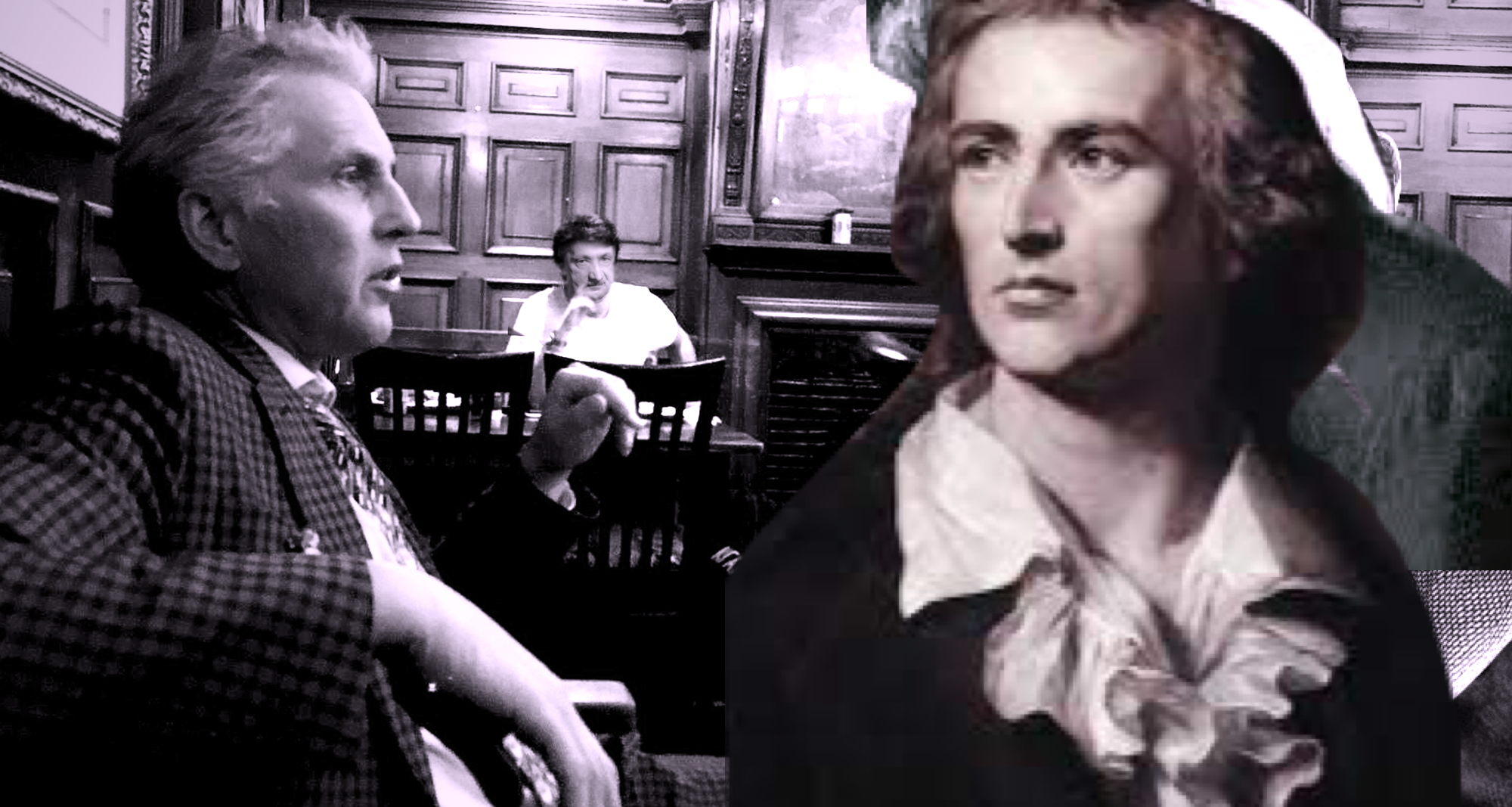
Interview by Richard Marshall
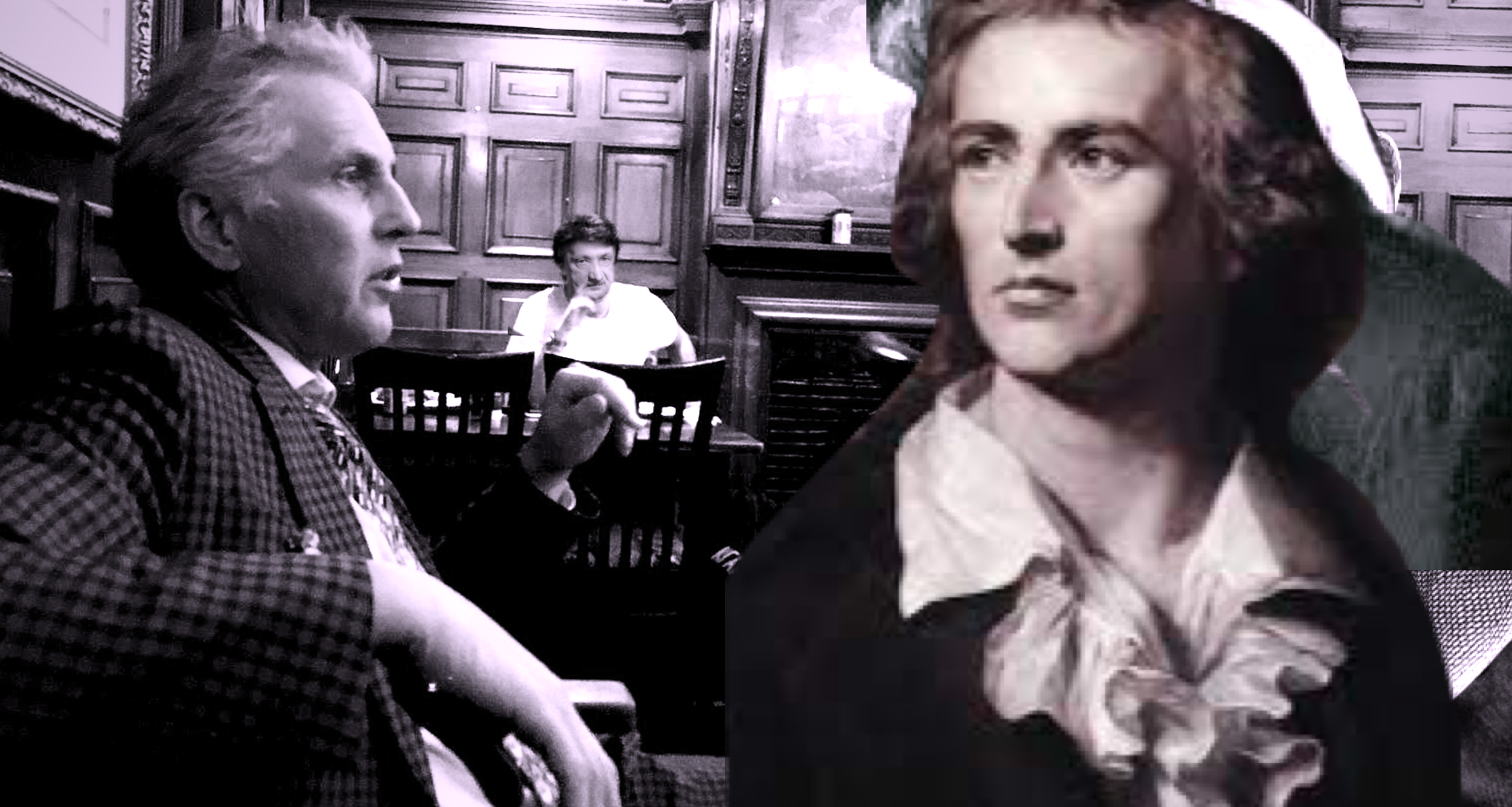
Johann Christoph Friedrich von Schiller is a German playwright, poet, and philosopher. For the last seventeen years he's developed a productive, if complicated, friendship with the already famous and influential Johann Wolfgang von Goethe. They frequently discuss issues concerning aesthetics, and Schiller encourages Goethe to finish works that he had left as sketches.
3:16: Of course you’re well known as a playwrite and poet but you are also seriously engaged with philosophy too and your pessimistic approach has been linked with later guys such as Shopenhauer hasn’t it? So what made you become a philosopher? Was it that you were thinking too much has been made of reason and not enough of feeling?
Johann Christoph Friedrich Schiller: Well, Reason has accomplished all that she can accomplish by discovering the law and establishing it. It’s execution demands the ardor of feeling. If the truth has hitherto displayed so little of her conquering power this was due not to the intellect that was powerless to unveil her but to the heart that closed itself against her since the way to the head must be opened through the heart
3:16: Locke and Hobbes thought we shouldn’t ask about the vocation of mankind. But you disagree don’t you?
JCFS: Identity with God is the vocation of man, to cite a wise man of the century, Adam Furguson of the Scottish Enlightenment. In God, it is the same whether one says: man exists to perfect himself or man exists to be happy. Virtue is wise good will. Our contact with men of distant lands has made possible the notion of universal history. All societies are members of the same human civilization, though at different stages in its development. From the small sum of known past events the universal historian selects only those whose influence on contemporary life has been essential and readily discernible, and moves backward in time toward the origins.
This produces an aggregate of world-changes which fit together only in a disconnected and fortuitous way. But his philosophical understanding transforms the aggregate into a coherent whole: the unity of the laws of physical and human nature allows him to infer backward to phenomena which had been left hidden or unrecorded. The universal historian transplants his reasoned harmony into the nature of things, a teleological principle into the course of world history. This elevates our every deed to immortality in the progression toward human perfectibility.
3:16: Are you a sentimentalist then like Furguson, Shaftsbury, Smith and Hume in your finding the source of morality in love?
JCFS: Oh yes.
3:16: You started off optimistic about providence but have become more skeptical about that and more humanistic in your general approach haven’t you?
JSFS: Enthusiasm is the bold powerful impetus that throws the ball in the air; but he is a fool who would expect the ball to run on forever in the same direction and the same velocity. The ball makes an arc, because its force breaks into the air. Do not glance over this allegory my friend for it is more than a poetic fancy; if you think about it carefully you will find the fate of all human plans suggested in such a symbol. We all strive and aim to reach the zenith, like a rocket, but we all make the same arc and fall back to mother earth. Still, this arc is so beautiful.
3:16: You were a theosophist once? What’s that?
JCFS: The world is the thought of God. In it, we ourselves become the perceived. We must embrace all of nature as if she were our love. Move on Richard...
3:16: But then you turned to studying Kant and things changed. Your friend Goethe said that you're all about freedom - in your early years you were concerned with physical freedom and later on with ideal freedom. Was he right?
JCFS: Certainly, no greater words have ever been spoken by a mortal human being than these Kantian ones, which at the same time are the content of his whole philosophy: determine yourself! Freedom – self-determination – is acting to the form of practical reason. Pure self-determination in general is the form of practical reason. Practical reason demands self-determination. Self determination of someone rational is pure rational determination, morality. But we never want to see constraint, even if reason itself executes it; even the freedom of nature we want to see respected.
3:16: You have a few difficulties with Kant’s approach to aesthetics and morality though don’t you, despite your affinities? So you were wanting to discover the objective principle of beauty! You think we have two mental faculties – the theoretical and the practical yes?
JCFS: Yes – theoretical reason connects representation with representation to gain knowledge, practical reason connects representation with the will in order to act. It’s principle is autonomy. If applied to unfree effects you get aesthetic judgments. Beauty becomes thus nothing less than freedom in appearance. There is no way to make sensible man rational except by making him aesthetic.
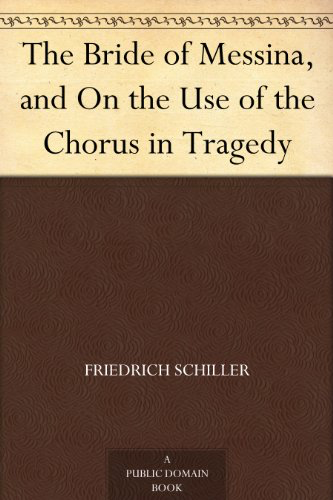
3:16: So what makes anything beautiful?
JCFS: First, the being-determined-through-itself of the thing. Something that exists through itself. Look, here’s an example: compare a workhorse with a palfry. The workhorse trots just as tiredly and clumsily as if it were still pulling a wagon, even when it is not pulling one. Its movement no longer springs from its nature but rather reveals the pulled weight of the wagon. The palfry’s movements however are an effect of its nature than has been left to itself.
3:16: So this is a kind of autonomy. The palfry is determined by its own nature, not gravity or function? Is this an idea you derived from the Greek ideal of kalokagathia, which originally meant something beautiful and good, an aristocratc ideal?
JCFS: Exactly. A clear and delicate perception of correct and appropriate behaviour in every situation, a sense of proportion and control, a spiritual freedom, an easy and unconstrained way of life, appreciated and admired by all.
3:16: Is this why you think aesthetic judgments are connected to ethical ones? Both are practical not theoretical reasonings?
JCFS: Yes. Moral actions are an analogy of the pure determination of the will and thus an exhibition of freedom. Self-determination of the rational is pure determination of reason, morality; self-determination of the sense-world is pure determination of nature, beauty.
3:16: You use this word, ‘Heautonomy, to go further and say what the highest beauty is – you think the beautiful object’s form has got to be self-determing – like your palfry – but also determine its form as well. It’s pretty Spinozean isn’t it? Is that right?
JCFS: Heautonomy occurs when the rule in question is both given and obeyed by the thing. A landscape’s beautiful if all of the particular parts out of which it is constituted play along together so well that they set their own limitations, and a dance when dancers interact so skillfully and yet so artlessly that both seem merely to be following their own mind.
3:16: And these things aren’t dependent on anyone seeing them? Is that what makes beauty objective for you?
JCFS: Yes.
3:16: Can actions be beautiful then?
JCFS: Yes. A free action is a beautiful action, if the autonomy of the mind and autonomy of appearance coincide. For this reason the highest perfection of character in a person is moral beauty brought about by the fact that duty has become its nature.
3:16: Ah, so this is what Goethe meant by freedom of nature – we want to see the freedom of nature respected and get offended if moral purposes get imposed on it. So we’re back with your ideas regarding moral beauty where duty becomes second nature?
JSFS: Exactly. The good Samaritan has moral beauty because he does his duty with an ease, as if he merely acted from instinct. So a free action is a beautiful action when the autonomy of the mind and the autonomy of appearance coincide. He forgot himself in his action and fulfilled his duty with the ease of someone acting out of mere instinct.
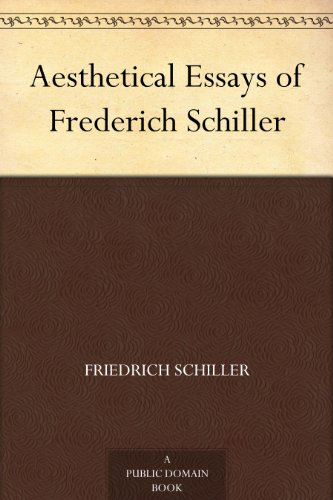
3:16: Now this idea raises the big questions that you discuss in terms of grace and dignity. What has the belt of Venus got to do with grace?
JCFS: Grace is beauty of movement. Movement is the only change an object can undergo without altering its identity, like a belt. Grace is an instance of personal merit, is the beauty of form under freedom’s influence. Grace is like the belt, a moveable beauty. A contingent property. Grace is a beauty that is not given by nature but that is created by the subject. Grace is beauty of form under the influence of freedom, the beauty of those appearences that are determined by the person.
3:16: So grace present a paradox: they’re movements of freedom and therefore we do them deliberately. On the other hand they’re involuntarily, at the behest of moral sentiment rather than natural instinct. How do you resolve this?
JCFS: Yes, sympathetic actions occur as you say at the behest of moral sentiment. But I am completely of one mind with the most rigorous moralists. Grace is an expression of moral attitude, not a type of reasoning. A beautiful soul isn’t conscious of possessing grace. The ethical sense has at last so taken control of all a person’s feelings that it can leave affect to guide the will without hesitation and is never in danger of standing in contradiction of its decisions. A beautiful soul carries out humankind’s most exacting duties with such ease that they might simply be the actions of its inner instinct, obeys reason with joy not discard it like a burden.
It is in a beautiful soul that sensuousness and reason, duty and inclination are in harmony, and grace is their expression as appearance. Because we recognize in the beautiful soul an image of human perfection, such harmony elicits our approval and love. That the mind , according to a law which we cannot fathom, through the condition in which it fids itself, prescribes its nature to the phenomenal nature accompanying it, and that the condition of moral accomplishment is also that through which the sensible condition of beauty is brought to fulfillment, these make the beautiful possible, and that alone is the mind’s action.
Look, as much as I am convinced – and just because I am so – that the share of inclination in a free action proves nothing about its pure dutifulness, for just this reason I also believe myself to be able to conclude that the share of an inclination in an action can reveal the moral perfection of a person. The human being is not designed simply to perform single moral actions but to be a moral being. Not virtues but the virtue is prescribed for him, and virtue is nothing less than an ‘inclination to duty.’
3:16: Are you saying then that you’re a bit worried that Kant’s account of the morality of actions could be mistaken for an account of the moral worth of a person, so that if someone is doing the moral thing but pulling a face and kicking and screaming about it, they’re still being virtuous?
JCFS: Well, let’s face it, it does not give a good opinion of a person if he can so little trust the voice of his feelings that he is forced on every occasion first to judge them by the moral law. Kant’s account of morals seems to involve a monastic frame of mind. My complete anthropological perspective incorporates individuality and sensibility into a more complete ethical ideal. The highest ideal of human perfection goes beyond morality.
3:16: In a sense you’re addressing the ascetic demands of Kant where he seems to separate reason from inclination and who seems to want to suppress our sensual side?
JCFS: The enemy who has been merely laid low can get up again, but the one who is reconciled has been truly overcome.
3:16: This harmony between the sensual and reason can’t always be found in the human can it?
JCFS: We have a suprasensual faculty, a will neither reasonable nor sensualist. Take pain, we can decide to hold on to it. And when pain threatens to force a human to act against reason, her ethical nature must resist creating the chance for moral greatness, the evidence of superiority of the higher faculties over the sensuous. In these situations the beautiful soul becomes heroic and transforms into a sublime soul. This is dignity.
Think of someone in extreme pain: veins swell, his muscles become cramped and taut, his voice cracks, his chest is thrust out, and his lower body pressed in. Yet his intentional movements are gentle, the facial features relaxed, and the eyes and brow serene. He shows a power independent of suffering, peace in suffering. The expression of humanity is complete in that person. Ruling our natural drives through moral power is independence of mind, and its expression in appearance is dignity.
3:16: So human dignity in the face of suffering is the height of being human for you. Is that why we enjoy watching suffering – it allows us to witness the best of humanity?
JCFS: The very assault on our sensuous life is the condition for igniting that power of mind whose activity produces the pleasure. How great is the crowd which follows a criminal to the showplace of his execution.

3:16: Is this where you at first found the source of tragedy?
JCFS: Yes. Tragedy isolates conditions under which the pleasure of the emotion would be produced with the most certainty and the greatest force. It is not simply the activity of the faculty of desire in general but a specific form of activity of this faculty created by reason.
3:16: But now you’re thinking more in terms of the sublime?
JCFS: The Kantian sublime is where our sensuous nature feels its limits, but our rational nature feels its superiority, its freedom from limits. Thus, we come up short against a sublime object physically, but we elevate ourselves above it morally, namely, through ideas. This means we can think more than we know. The tragic sublime is just one kind of sublime. Remember Richard – for me beauty is when we harmonise reason and sensibility – none of that Fichtean perfecting reason as the highest good for me of course – so we do our duty because we want to. But when we can’t get that harmony oh man it’s hard because then we have to sufferwhen we do our duty. It’s a heavy thing Richard, but it reminds us of our freedom – and it’s personal, like, we all do it in our own way.
Beauty enchants us Richard – but the sublime teaches us our true vocation, gets us to know the highest order of being. So the tragic and the sublime have a similar structure – in a tragedy we admire the hero but also fear for him because of his fate – and for ourselves because, let’s face it, we could fall into the same fateful situation in our own way. The sublime explains our pleasure in this. When we see Macbeth or Richard III suffering at the very limits we feel their horror, dread and fear but also witness the affirmation of our infinite values happening in nature.
3:16: This is the mixture of fear and awe when conceptualizing infinity – the Kantian supersensible realm behind sense experience which you see as a rational, noumenal realm and Nietzsche, later on, saw as the sphere of blind and irrational instinct and energy. You’ve no sense of that Dionysian tragedy we find in Nietzsche have you, whereby tragedy makes us one with the cosmos? Your version of tragedy affirms our individuality as moral agents doesn’t it?
JCFS: Yes, it’s where we have only our intellectual self, to the inner self-sufficiency of his rational powers. The sensual becomes an external, natural thing that has no effect at all on what we genuinely are as persons, our moral selves. This is resistance on a completely different order.
3:16: So sensuality shows us that we are never far from the causes of fear. But the sublime shows us being fearful but not caving in to the fear.
JCFS: There is the contemplative sublimity of power terror in the dark or silence, and there’s the pathetic sublime, the witness of suffering. Nothing is so beneath the dignity of human beings as to suffer violence, for it destroys the individual’s humanity, and anyone who cowardly suffers it, tosses his humanity aside. Sublime resistance is done idealistically, when he takes a step beyond nature and thereby negates the concept of brute force in regard to himself. Here pain and happiness mix and are preferred by noble souls over all pleasure because it establishes our moral self-sufficiency in an irrefutable manner. The capacity to feel the sublime is thus one of the most glorious dispositions in human nature.
3:16: The sublime offers evidence of our autonomy that beauty can’t , is that the idea?
JCFS: The beautiful soul finds pleasure in the exercise of justice, charity, temperance, fortitude, and fidelity, but beauty would make us forget our dignity. Only if the sublime is married to the beautiful and our sensitivity to both has been shaped in equal measure, are we complete citizens of nature, without on that account being its slaves, and without squandering our citizenship in the intelligible world. Just as grace is the expression of a beautiful soul, dignity is the expression of a sublime disposition.
3:16: Is art the way we prepare for this completion, of the blending of the beautiful and the sublime?
JCFS: Yes. The artificial misfortune of the pathetic finds us fully equipped, and, since it is merely imagined, the self-sufficient principle in our minds gets room to assert its absolute independence. Art is an inoculation against unavoidable fate. Portrayal of suffering—as mere suffering—is never the end of art but as a means to this end it is of the utmost importance to art. Tragedy requires a full salvo of suffering.
3:16: So we practice perfecting our sublime emotions in art so that when we confront actual tragedy we are ready?
JCFS: A human being can soar no higher! In the case of the contemplative sublime the mind stays in a state of repose – an abyss, a storm at sea, an erupting volcano become sublime objects as soon as the imagination relates them to its own physical existence. The representation of danger is based on really dangerous things though for it to be fearsome we must relate them to ourselves. But sometimes objects not like this – deep stillness or silence, great emptiness, great darkness – can also bring fear because the imagination creates the fear. The imagination is in its proper element here because suspense makes it fear that something horrible will happen.
The pathetic sublime only takes objects that are reallt dangerous. We don’t suffer, but we see someone else suffering. Because the sublime needs quiet contemplation the pathetic sublime is always about the other person suffering and must be purely sympathetic feelings aroused, not empathic. Only when the suffering is mere illusion or fiction, only when presented to the imagination and not the senses is it possible for an object to be sublime.
3:16: You’re impressed by Johann Winckelmann’s description of the statue of Laocoon as an example of all this aren’t you?
JCFS: Yes. In the course of this trembling we feel ourselves elevated, then it is because we become conscious that, even as a victim of this power, we would have nothing to fear for ourselves insofar as we are free. Take the self-sacrifice of Leonidas at Thermopylae: Judged from a moral perspective, this action portrays for me the moral law being carried out in complete contradiction of instinct. Judged aesthetically, it portrays to me the moral capability of a human being, independent of all coercion by instinct.
3:16: Why is the unnecessary self-immolation of Peregrinus Portheus negative in ethical terms, but nevertheless aesthetically pleasing for you?
JCFS: It testifies to a capacity of the will to withstand even the mightiest of all instincts, the instinct for self-preservation”.
3:16: You had some self doubts about your play ‘The Robber’ because it made the lawbreaker the hero. Yet the play works despite this doesn’t it?
JCFS: It seems we’d rather watch power and freedom expressed at the cost of lawfulness than watch lawfulness expressed at the cost of power and freedom.
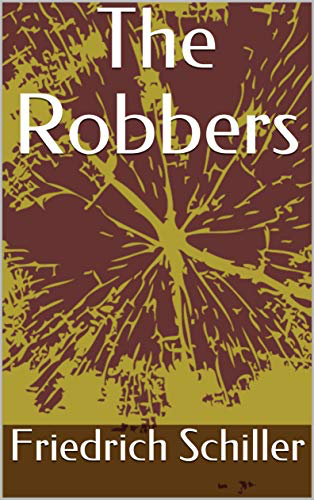
3:16: So do you find the value of art endorses the Enlightenment ideal?
JCFS: The stage can be more effective educator of the public but then again, it may only be a bright play of colours on a surface, the sweet shimmering of sunlight on a wave, mere entertainment rather than instruction, a diversion, a stage for the vanity of actors. Indeed, before the public is educated for its stage, it is very difficilt for it to educate the public. The silly and dirty masses won’t appreciate theatre but will be worthwhile if some friend of truth and healthy nature, a noble and incorrupt soul leaves the theatre with an animating warmth, and maybe even the cruder masses will get something.
But I do think the stage is a school of practical wisdom, a pathfinder through civil life, an infallible key to the most secret recesses of the human soul. The stage is the common channel in which the light of truth from the thinking part of the nation flows downwards and spreads itself in mild rays throughout the entire state. Corrected concepts, refined principles, purer feelings flow from there through all the veins of the nation; the fog of barbarianism, the darkest superstition disappeards; night gives way to the triumphant light. The jurisdiction of the stage begins where the domain of worldly laws ends.
3:16: Well, you sound a bit conflicted here. You’ve been accused of not being the servant of religion and morality in your works? Do you think an artist should be or do you think art is autonomous?
JCFS: I am convinced that every work of art may account only for itself, that is, its own rule of beauty, and it should not be subject to any other demand. The poet who makes beauty his sole purpose, but follows it religiously, will in the end have attained, as a reward, without knowing or intending it, all other goals that he seemed to neglect; he who wavers unsteadily between beauty and morality, or whatever it might be, or he who attempts to woo both, will easily ruin both of them. As I put in a poem, everything is working towards achieving the aesthetic culture as an end in itself – ‘The treasures that the thinker accumulate/he will only be pleased in your arms/when his science, ripened to beauty/is ennobled to a work of art.’ And this: ‘The sisters that have escaped you/youwill catch again in the lap of your mother;/ what the beautiful soul has felt to be beautiful/ must be splendid and perfect.’ The lyric poet must restore the whole person in us, and the poet must mirrir the whole wisdom of its time to be a model for its century.
3:16: And this is why you think a poet should not be elitist but steer a middle ground between elite and popular poetry by choosing good subjects and presenting them as simply as you can, idealizing them so there’s a universal connection to everyone. What you don’t want is to demand that art serves morality do you?
JCFS: Like I said before Richard, to give the arts stature, to earn for them the favour of the state and the respect of everyone alike, one drove them out of their proper domain and imposed upon them a vocation alien and entirely unnatural to them.
3:16: But that’s not to say that art is reducable to mere entertainment, as Rousseau would have it does it?
JCFS: Aesthetic pleasure is sui generis.
3:16: How does this fit with your political theory?
JCFS: The state has rotting foundations giving way. People have crude, lawless instincts or repugnant spectacles of lethargy. We see the spirit of the age wavering between perversity and brutality, between unnaturalness and mere nature, between superstition and moral unbelief; and it is only through an equilibrium of evils that it is still sometimes kept within bounds. moral possibility is lacking.
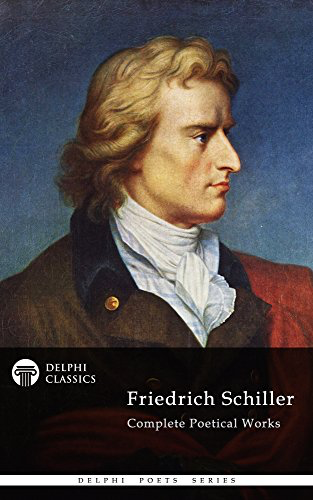
3:16: Why is this? Is it because there’s been too much emphasis cultivating reason, not enough of feelings?
JCFS: As I've already said, the development of man’s capacity for feeling is the more urgent need of our age.
3:16: Have we got a way of doing this whilst not throwing out reason?
JCFS: You need to listen in to what I’ve been saying Richard. The instrument is fine art. Surround our contemporaries with the great and noble forms of genius, and encompass them about with the symbols of perfection, until semblance conquer reality, and art triumph over nature. 3:16: But hasn’t art sometimes been a negative influence?
JCFS: True, we should beware of being delivered up to her enervating influence.
3:16: But shouldn’t we get clear what our definition of art is before we decide one way or the other?
JCFS: Interesting: perhaps experience is not the judgment seat before which such an issue can be decided. Perhaps beauty requires a pure concept of human nature as such. We need the transcendental way to find the self and its determining attributes. People should externalize all that is within him and give form to all that is outside him. We have a sense and a form drive. The sense drive proceeds from the physical existence of man. Man in this state is nothing but a unit of quantity, an occupied moment of time—or rather, he is not at all, for his personality is suspended as long as he is ruled by sensation. The form drive annuls time and annuls change. It wants the real to be necessary and eternal, and the eternal and the necessary to be real. In other words, it insists on truth and on the right.
3:16: And when in balance a new drive comes in – the play drive?
JCFS: Yes: When balanced man is at once conscious of his freedom and sensible of his existence, can feel himself matter and come to know himself as mind. The drives work in concert directed toward annulling time within time, reconciling becoming with absolute being and change with identity. To the extent that it deprives feelings and passions of their dynamic power, it will bring them into harmony with the ideas of reason; and to the extent that it deprives the laws of reason of their moral compulsion, it will reconcile them with the interests of the senses. So doing, a human has an intuition of his human nature, and the object that afforded him this vision would become for him a symbol of his accomplished destiny.
3:16: So what can trigger this play drive?
JCFS: Living form, that is, beauty. So, for example, when we look at a beautiful thing we find ourselves at one and the same time in a state of utter repose and extreme agitation.
3:16: And in such a state neither the form drive nor the sense drive dominates?
JCFS: And gives rise to freedom.
3:16: So does this freedom correlate to our ability to articulate and follow the moral law?
JCFS: Not at all. When reason utters the pronouncement: let humanity exist, it has by that very pronouncement also promulgated the law: let there be beauty. Man only plays when he is in the fullest sense of the word a human being, and he is only fully a human being when he plays.
3:16: Beauty doesn’t actually produce knowledge or build character does it?
JCFS: No, but something is achieved. The play state is the most fruitful of all in respect of knowledge and morality. This lofty equanimity and freedom of the spirit, combined with power and vigor is the mood in which a genuine work of art should release us. After seeing such art we shall with equal ease turn to seriousness or to play, to repose or to movement, to compliance or to resistance. Beauty gives the gift of humanity, is our second creatress. The realm of taste is a realm of freedom – the beautiful sensible world the happiest symbol of how the moral ought to be, and every beautiful natural being outside me is a happy witness, who proclaims to me: Be free as I am.
3:16: So beauty can tense up the too sensual person and melt the too rational – doesn’t that mean there’s a danger that art might be too energized, extravagant, or too stifled and empty?
JCFS: Yes, but we can cancel these extremes: in reason man leaves the narrow confines of the present in which mere animality stays bound, in order to strive towards an unlimited future. Beauty brings us into the world of ideas without leaving behind the world of sense.
3:16: You’re obviously well known for giving Beethoven the lyrics for his last symphony – an ode to freedom that seems to announce your liberal republican credentials pretty much. If that is right then how do you answer the issue raised by Rousseau and Machiavelli : if the foundation of a republic is virtue and we can only create virtue if we already have a Republic, then how do we even get started?
JCFS: If our legislators have done wrong in neglecting moral duties and virtues, The Greek legislators have done wrong by inculcating moral duites according to the coercion of the laws. For moral beauty of actions the first condition is freedom of will, and this freedom is gone as soon as one wants to compel moral virtue through civil penalities. The most noble privilege of human nature is to determine oneself and to do the good for the sake of the good. No civil law may command fidelity toward a friend, generosity towards an enemy, gratitude toward a father and mother, for as soon as it does this a free moral feeling becomes transformed into a work of fear and slavish impulse.
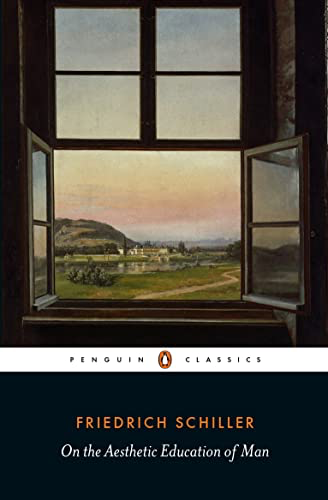
3:16: So if the state can’t get us out the problem do you agree with Machiavelli’s and Rousseau’s solution, which is that religion has to be used to capture the hearts and minds of the citizens?
JCFS: No. Not religion. As I said before, Aesthetic education.
3:16: So this is an education that transforms a state of nature into a state of morality?
JCFS: Yes, for the work of blind forces possesses no authority before which freedom must bow.
3:16: But the improved state can only reform if we look after our physical existence as well?
JCFS: Yes.
3:16: But although you’re a reformist, you don’t say revolution and revolt are always a bad thing do you? You approve of the Dutch revolt against the Spanish crown for example?
JCFS: Philip II was a tyranny without precedent and the revolt showed what men risk for a good cause and achieve through unity.
3:16: Rousseau is someone with whom you totally disagree with regard to the arts. He thought man was independent and self sufficient in a state of nature, ruined by culture and civilization didn’t he?
JCFS: But what is man without culture? Rousseau conceives , as idea, a state of nature attributes to himself in this idealized natural state a purpose of which in his actual natural state he was entirely ignorant, and a power of free choice of which he was at that time wholly incapable and now proceeds exactly as if he were starting from scratch, and were, from sheer insight and free resolve, exchanging a state of complete independence for a state of social contracts. Bonkers!
3:16: So is it the aesthetic sensibility that brings culture to humans?
JCFS: As I’ve said earlier yes. Look, what sort of phenomenon is it that proclaims the approach of a savage to humanity? It is the same in all races who have escaped from the slavery of the animal state: a delight in appearance, a disposition toward ornament and play. The reality of things is the work of nature, the appearance of things is the work of man, and a nature that delights in appearance is no longer taking pleasure in what it receives, but in what it does. Man shall only play with Beauty and he shall play only with Beauty.
3:16: In a nutshell, what’s your ideal of beauty then?
JCFS: Everything that is mortal is dissolved, nothing but light, nothing but freedom . . . no shadow, no barrier. . . . It makes me giddy to think of this task: . . . to compose a scene on Olympus. . . . I may do it one day when my mind is wholly free and cleansed from the pollution of the real world.
3:16: Wow. Seems kind of unattainable doesn't it? Ok, now, a big part of your disagreement with Rousseau politically is that you think his theory of rights and the tribunal of reason had in the French Revolution, for example, been enforced at all costs because modernity had split mankind and whereas he saw this splitting as positive you don’t, rather like Nietzsche?
JCFS: Yes. The abstract thinker very often has a cold heart since he dissects his impressions and impressions can move the soul only as long as they remain whole.
3:16: Does this help us contextualise your poetry as something lost, to be retrieved, as aufgehoben which I think you mean something like ‘simultaneously cancelled yet preserved’ which was taken up by Hegel?
JCFS: Poets will either be nature, or they will seek lost nature. From this arises two entirely different modes of poetry which, between them, exhaust and divide the whole range of poetry.
3:16: Is that what you’re getting at when you describe your entire artistic output as sentimental – meaning elegeic, a rehearsal of loss, rupture, distance, in contrast to the naturalism of Goethe whose output was realistic and affirmative?
JCFS: Spot on Richard.
3:16: So basically you propose the utopian vision of an aesthetic state where we are all in a state of free play?
JCFS: Yep. It’s my version of Kant’s kingdom of ends which is where he says a kingdom consists in a systematic union of different rational beings under common laws. The edifice of error and caprice will fall – it must fall, indeed it has already fallen – from the moment you are certain that it is on the point of giving way. But it is in man’s inner being that it must give way, not just in the extrernals he presents to the world. It is in the modest sanctuary of your heart that you must rear victorious truth and project it out of yourself in the form of beauty, so that not only thought can pay homage, but sense too, lay loving hold on its appearance.
And lest you should find yourself receiving from the world as it is the model you yourself should be providing, do not venture into its equivocal company without first being sure that you will bear within your own heart an escort from the world of the ideal.
3:16: Marx talks about unalienated labour’ and you seem to be anticipating that thought?
JCFS: I’m against man becoming merely the imprint of his occupation.
3:16: So is patriotism the thing that binds us together in this state , as is stressed by Machiavelli, Rousseau, Montesquieu and Ferguson?
JCFS: As Ferguson says: ‘The happiness of a people consists in the love of their country.’
3:16: And this isn’t an endorsement of irrationalism and fascism because…?
JCFS: Have you been paying attention Richard? The beautiful soul is where affections and reason are harmonized through play. Feelings aren’t replacing the law or ethics. Look, the dynamic state can merely make society possible by letting one nature be curbed by another; the ethical state can merely make it morally necessary by subjecting the individual will to the general; the aesthetic state alone can make it real because it consummates the will of the whole through the nature of the individual.
3:16: And isn’t it elitist – won’t the well-tuned souls this needs be rare?
JCFS: Not at all, the select circles of the well tuned souls are charged with educating everyone towards this state.
3:16: It might seem a strange thing to ask, but do you think aesthetic philosophizing helps artists?
JCFS: Good question Richard. It is still the question whether the philosophy of art has anything to say to the artist. I myself applied the metaphysic of art too directly to objects and handled it as a practical tool for which it is not quite suitable.
3:16: And for the readers here at 3:16, are there five books you can recommend that will take us further into your philosophical world?
JCFS: 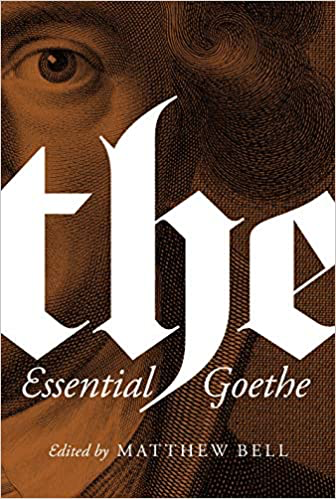
Goethe
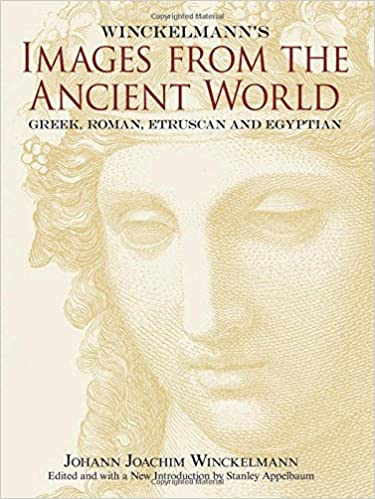
Winckelmann
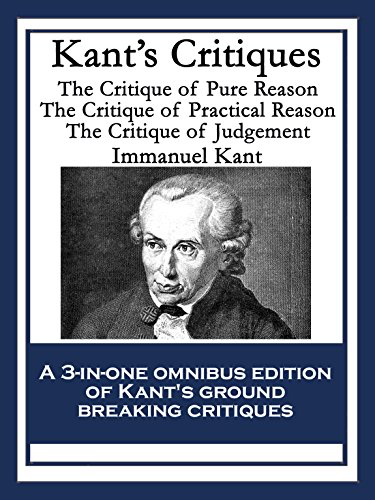
Kant 3rd Critique
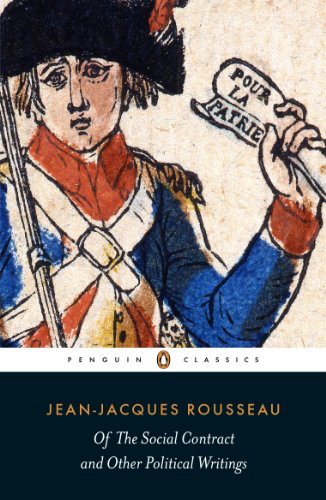
Rousseau
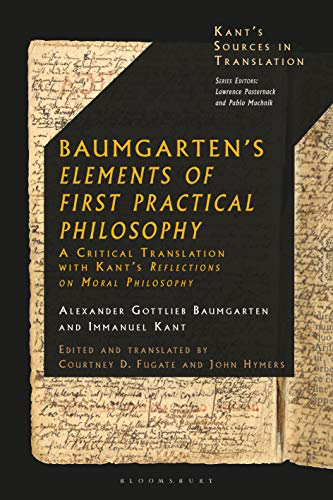
Baumgarten
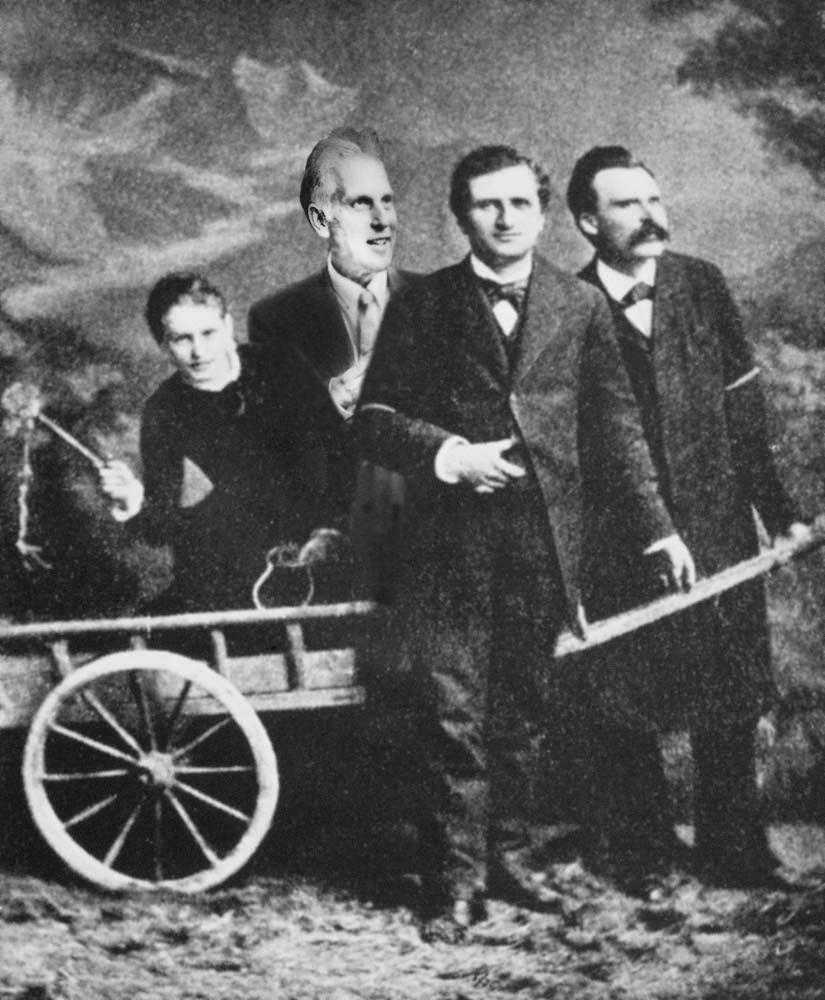
About the Interviewer
Richard Marshall is biding his time.